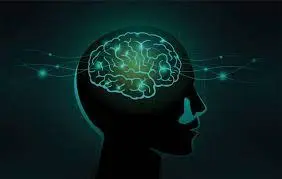


Addiction is a complex and pervasive condition that affects millions of lives globally, transcending boundaries and demographics. Whether fueled by substances or behaviors, addiction takes a toll on the brain’s intricate circuitry. The process of rewiring the brain from addiction is a challenging but transformative endeavor, encompassing biological, psychological, and social facets. In this comprehensive article, we will delve deep into addiction’s mechanisms, explore the science behind how long to rewire brain from addiction

The brain’s reward pathway, primarily driven by the release of dopamine, is at the heart of addiction. This pathway reinforces pleasurable experiences and cements the link between the addictive substance or behavior and the associated pleasure. Over time, repeated exposure desensitizes the brain’s reward system, leading to tolerance and an increased need for the addictive stimulus.
Central to the process of rewiring the brain is neuroplasticity. This phenomenon refers to the brain’s ability to reorganize itself in response to experiences, learning, and environmental changes. Neuroplasticity allows the brain to form new connections, weaken existing ones, and adapt its neural pathways. Harnessing this adaptability is key to undoing the changes wrought by addiction.
Several pivotal factors intertwine to shape the duration and effectiveness of brain rewiring:
The type of addiction—whether substance-related or behavioral—impacts how the brain is rewired. Some substances, like stimulants, cause rapid and pronounced rewiring, while behavioral addictions might take longer to alter neural pathways.\
The length and frequency of engagement in addictive behavior play a crucial role. Prolonged addiction creates deeply ingrained neural pathways that necessitate extensive rewiring.
The brain’s plasticity varies across the lifespan. The adolescent brain, for instance, is more adaptable, potentially leading to quicker rewiring in younger individuals.
Factors influence an individual’s vulnerability to addiction and their capacity for rewiring. Genetic variations can impact dopamine receptors and other neurotransmitter systems involved in addiction.
Conditions like depression, anxiety, or trauma can complicate the rewiring process. Treating these underlying issues is essential for successful recovery.
While every journey is unique, a general roadmap of brain rewiring stages can be outlined:
The initial phase involves ridding the body of the addictive substance, often accompanied by withdrawal symptoms. This phase is a vital first step toward rewiring.
In the early months, the brain begins to recalibrate. Cognitive functions improve, and individuals experience the first glimmers of reduced cravings.
With sustained abstinence, the brain’s reward circuitry gradually shifts. New neural connections form, bolstering healthier behaviors and dampening the allure of addiction.
Over the course of extended abstinence “how long to rewire brain from addiction”, the brain’s rewiring duration for addiction becomes more pronounced. Cravings gradually become sporadic, as the brain progressively strengthens its capacity to resist relapse triggers
The duration of brain rewiring is a product of the interplay between diverse factors. Recovery is not a linear path; setbacks and challenges are part of the process. Patience, support, and comprehensive treatment are critical. Individuals can foster brain rewiring by embracing therapy, support groups, healthy lifestyle choices, and a positive social network.Ultimately, brain rewiring is not a destination—it’s a lifelong journey toward reclaiming autonomy, well-being, and a renewed sense of purpose.